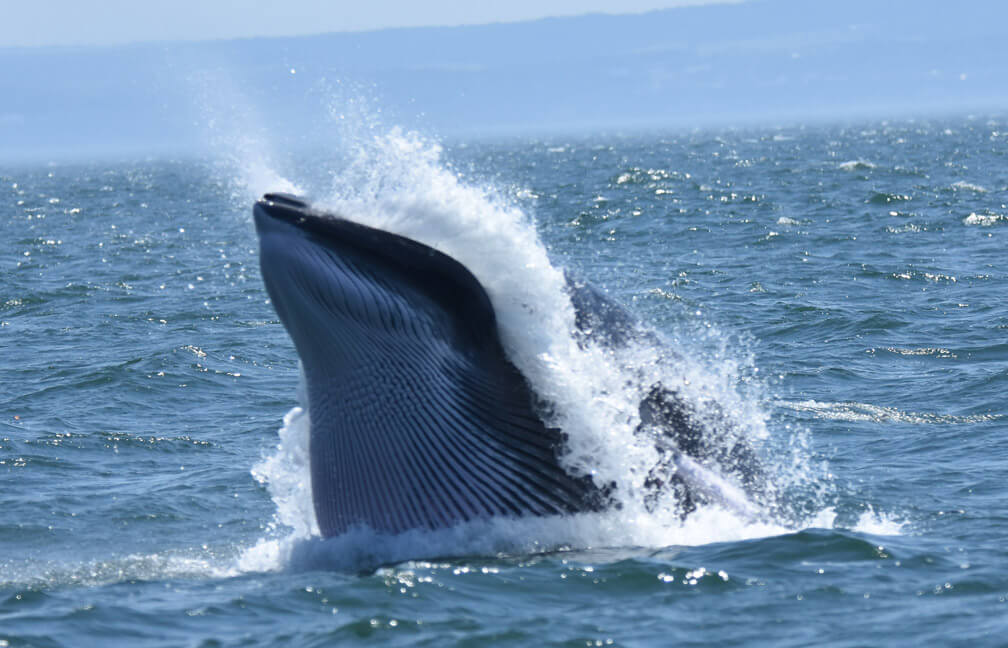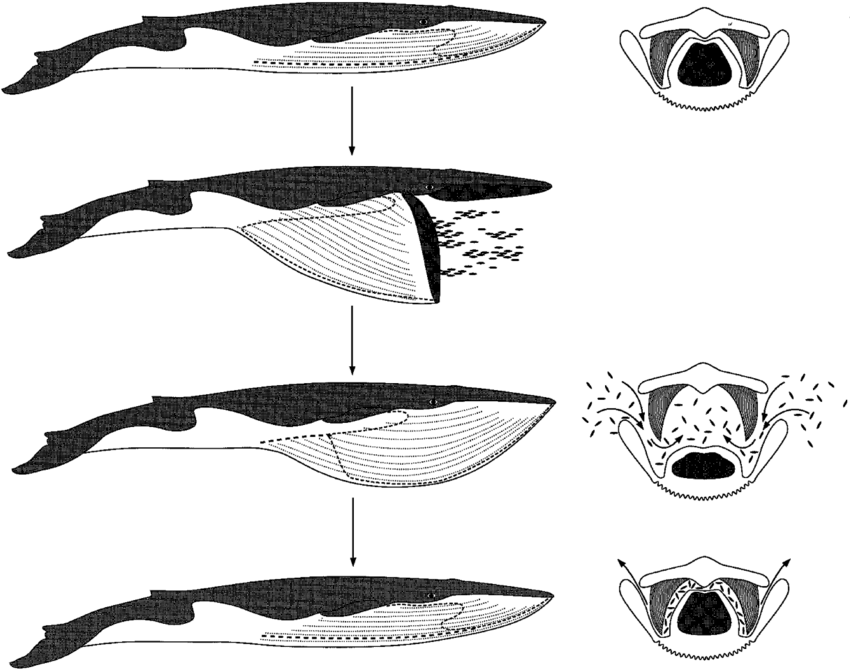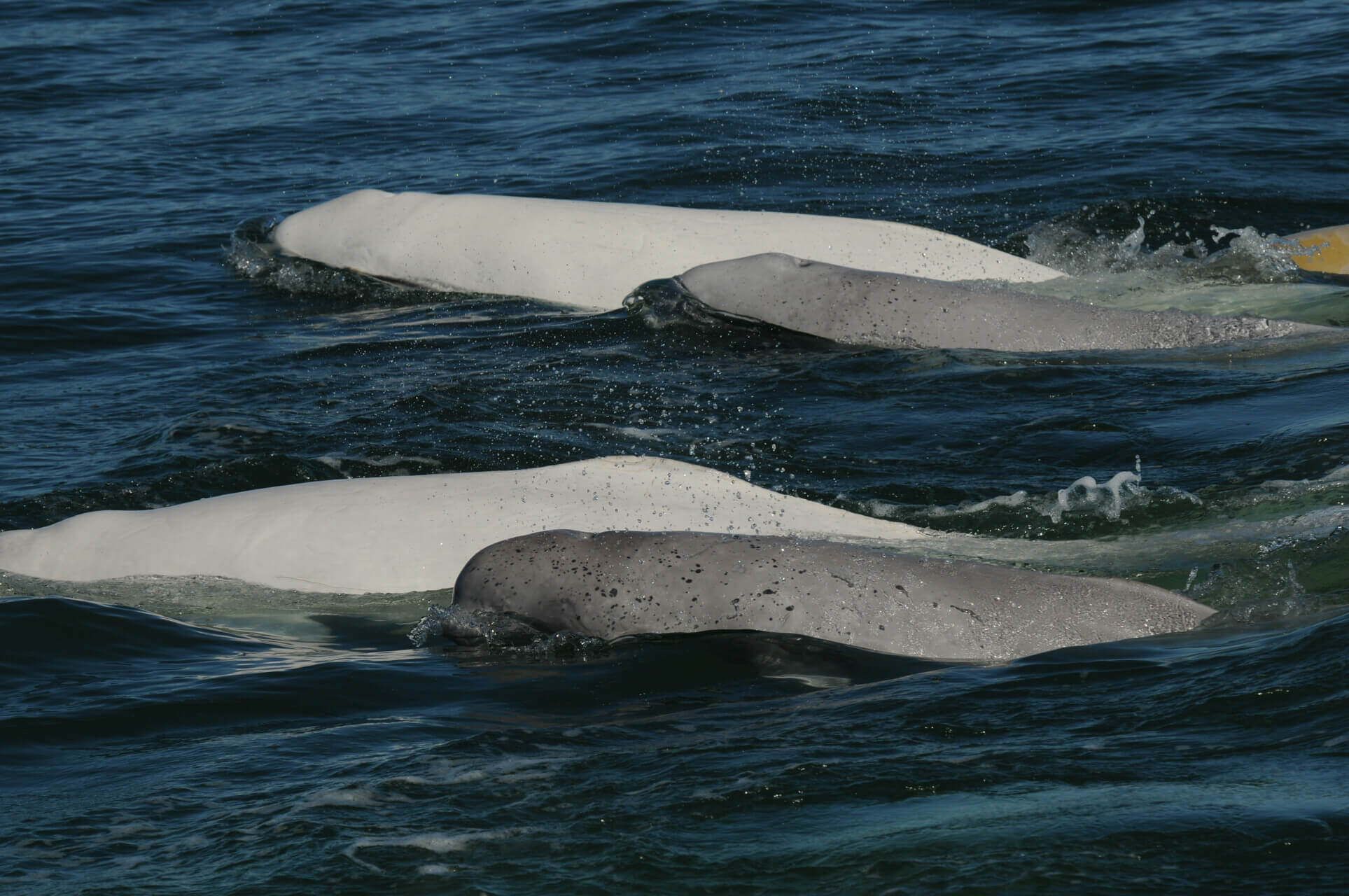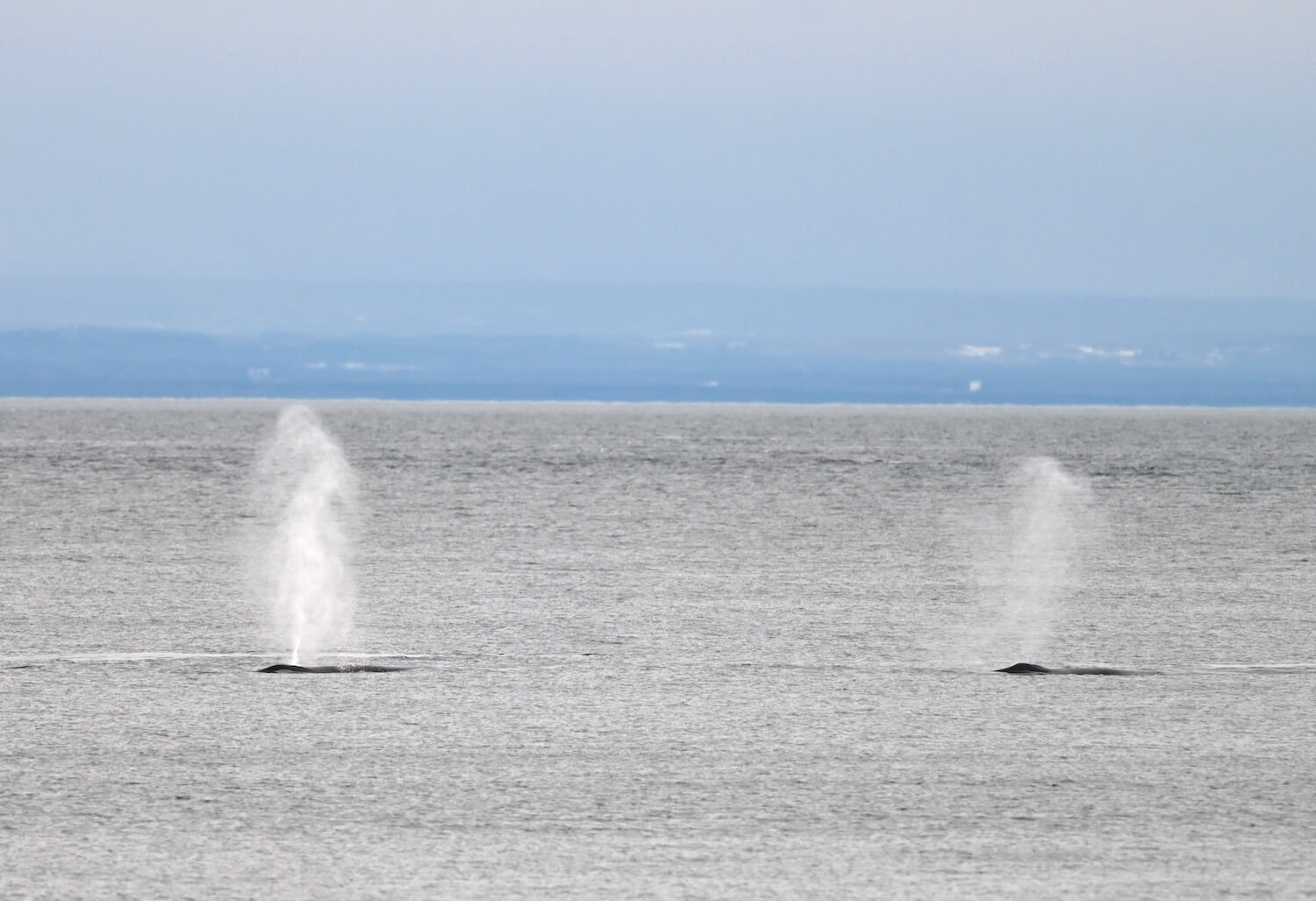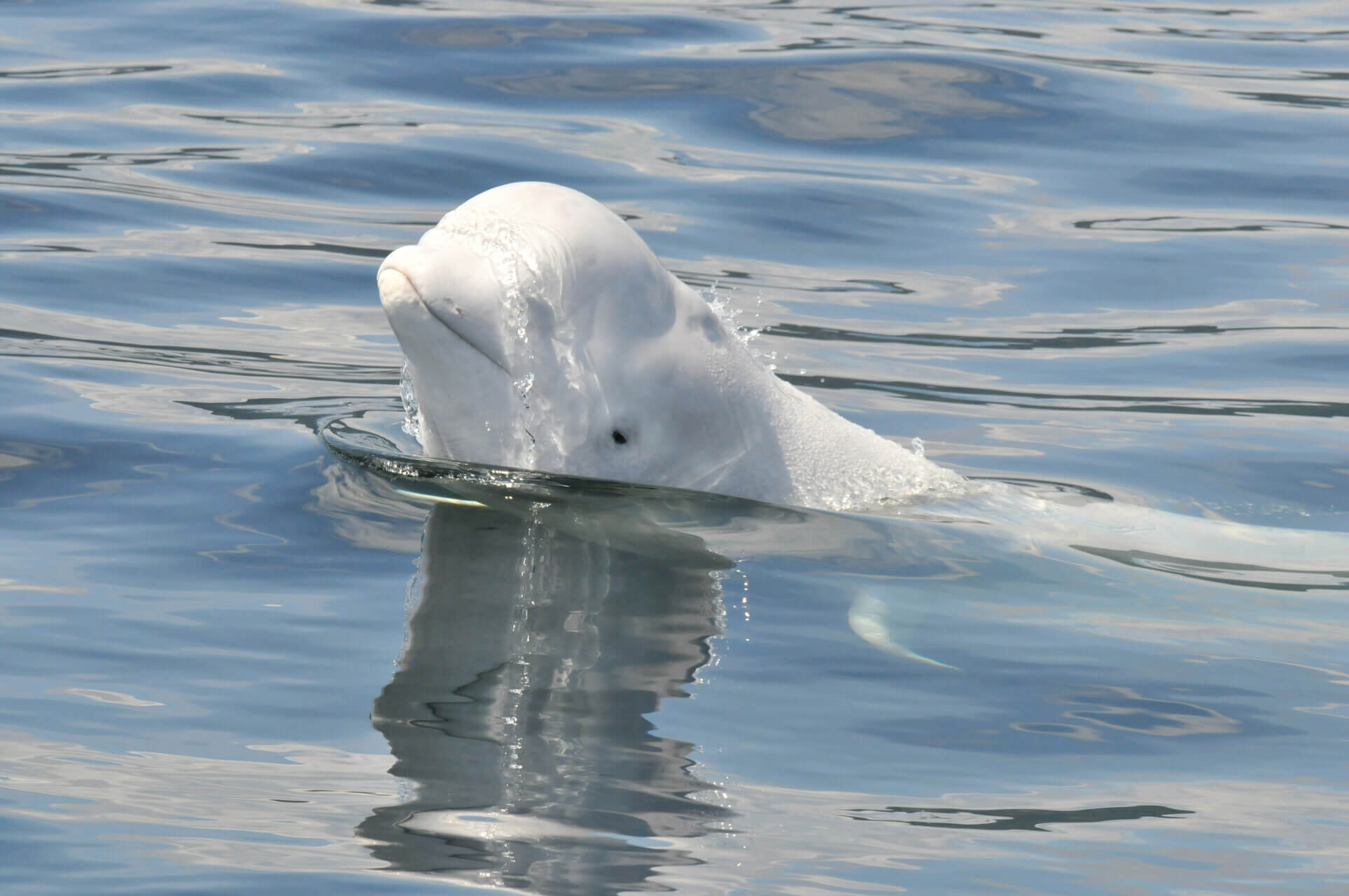The word “rorqual” comes from the Norwegian rorkval, which means “tubed” or “furrow-bellied” whale. The name refers to the folds that line a whale’s throat from under its mouth to its stomach. These folds, which resemble expandable concave furrows in shape, have the peculiarity of stretching like an accordion.
When rorquals locate a school of krill or small fish, they accelerate and, at the last second, open their mouth. The mandible (lower jaw) then opens to 90°, allowing water and prey to enter, after which the stomach balloons like a parachute. The volume of water engulfed is sometimes greater than the volume of the rorqual itself. The ventral pouch expands by 162% in girth and 38% in length. The water is then expelled through the half open mouth by means of the powerful muscles of the belly and tongue, which push it through the baleen attached to the maxilla, or upper jaw bone.
This action unfolds very quickly: a blue whale can engulf 100 tonnes of water in under 10 seconds. This is all possible thanks to a sensory organ located between the two bones of the lower jaw, which sends a nerve signal as soon as the mouth begins to open. Then, stretchy nerves control the contraction that allows the water to be expelled through the mouth. This stretchy property of the nerves is unique in the animal kingdom. Nerves are normally fragile and inelastic, while those of whales are rather reminiscent of bungee cords. Composed of elastic fibres to stretch and collagen to solidify, nerves can more than double in length, stretching from 14 cm to 34 cm.


